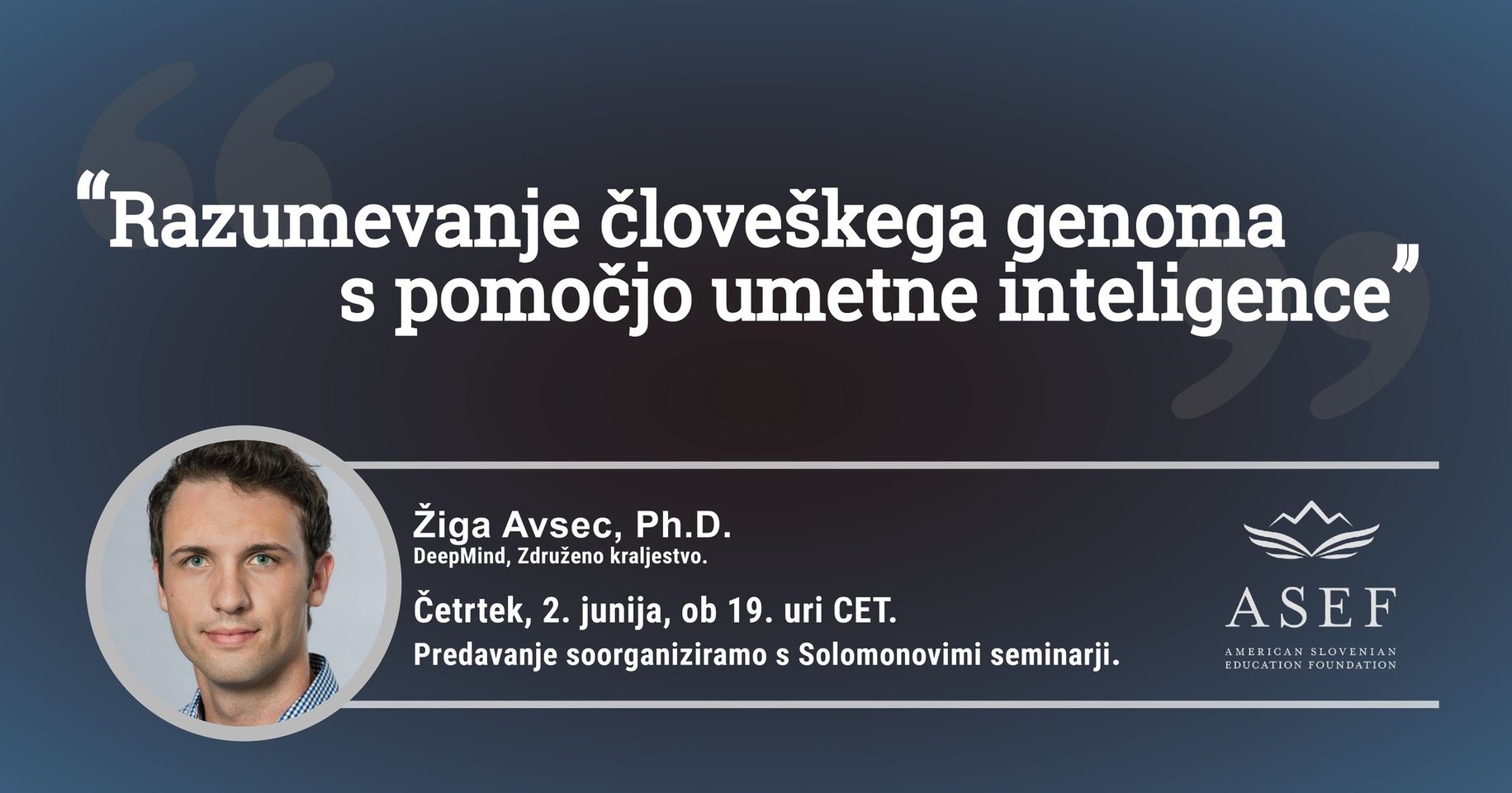
Dr. Žiga Avsec: Understanding the Human Genome With the Help of Artificial Intelligence
This time we will be joined by dr. Žiga Avsec with a lecture: “Understanding the human genome with the help of artificial intelligence”.
TThe lecture will take place in the Great Lecture Hall at the Jožef Stefan Institute, Jamova cesta 39, 1000 Ljubljana. The number of participants is limited. Please register for the lecture by 6 pm on June 2 at the following link: registration.
ABSTRACT
When scientists successfully sequenced the human genome in 2003, the international research community was excited about the opportunity, which offered a better understanding of genetic guidelines that affect human health and development. DNA carries genetic information that determines various traits, such as eye color or susceptibility to certain diseases and disorders. About 20,000 pieces of DNA in the human body, known as genes, contain instructions on the sequence of amino acids that make up the proteins that perform essential functions in our cells. However, these genes represent less than 2% of the genome. The remaining base pairs, which make up 98% of the 3 billion “letters” in the genome, contain much lesser-known instructions on when and where genes should be expressed in the human body. In this lecture, dr. Žiga Avsec presented how artificial intelligence can help us better understand the lesser-known instructions for gene expression and also mutations that can change these instructions undesirably.
BIOGRAPHY
Dr. Žiga Avsec is a scientist employed by Google’s DeepMind company, where he develops artificial intelligence to solve difficult scientific problems in biology. He completed his undergraduate studies in physics at the Faculty of Mathematics and Physics in Ljubljana. He then continued his journey at Ludwig-Maximilian University in Munich, where he earned a master’s degree in biophysics and became interested in artificial intelligence. He received his doctorate with the highest honors from the Faculty of Informatics of the Technical University of Munich in the field of artificial intelligence and genomics on the topic “Understanding the human genome using predictive models”.
ASEF
ASEF connects scientists and academics across the world. You can find more information at thier webpage.



